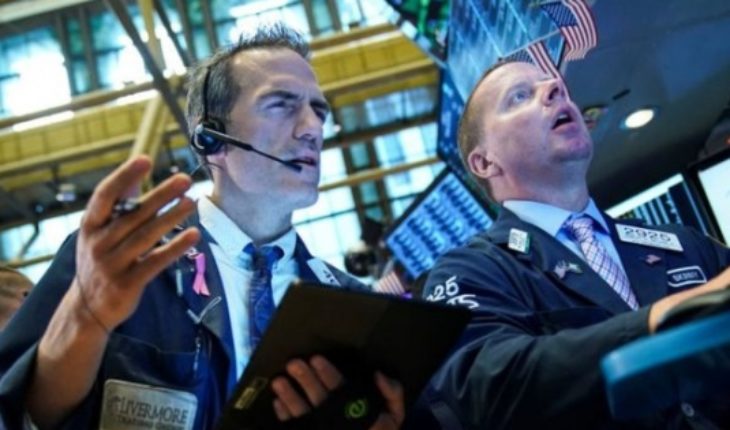Although calm transitmed back to markets after the storm unleashed on Monday by the devaluation of the yuan, the consequences of the fall in the Chinese currency continue to affect the world economy and the p Latin America.
China devalued its currency at a low in the past 11 years, just days after the White House announced it will impose another 10% tariff on products from the Asian giant worth US$300 billion as of September.
Washington did not take a second to label Beijing a “currency manipulator,” and the Asian giant warned him that such accusations can cause chaos in financial markets.
With trade tension slates to that level, stock markets recorded their biggest fall of the year and the dollar soared against the currencies of emerging countries, something that happens every time Donald Trump or Xi Jinping pull out their weapons.
Why does the fall of the yuan shoot the dollar?
Faced with the uncertainty generated by the escalation of the trade war and the devaluation of the yuan, investors moved their capital this week seeking to shelter hard currencies such as the Japanese yen, the US dollar or the Swiss franc, while others bought gold to protect themselves from volatility (which has been setting highs since 2013).
“China depreciates its currency and generates a global movement of risk aversion,” Mundo Federico Furiase, chief economist at the consultancy Eco Go and professor at the Argentine university Torcuato Di Tella, tells BBC.
With the devaluation of the yuan, investors move their capital towards “hard currencies” like the dollar. Basically, such a low yuan ignites the alert, investors flee unstable or dangerous markets and protect themselves by protecting themselves by killing their capitals.
“This is consistent with falling sovereign bond interest rates, falling stock indices, rising financial volatility, and currency depreciations in emerging countries,” says Furse, as it is happening in Latin America.
“We are facing a wave of currency depreciation against the dollar,” he explains, against a backdrop of increased global recession risk and expectations that the Federal Reserve (the U.S. central bank) will again cut the cost of credit by lowering the rates of Interest.
How much have the currencies fallen in the region?
Currencies in Latin America lost value in recent days, although the trend to depreciate had been around for several weeks.
“Compared to the dollar, the Chilean peso has lost 5.5%, the Brazilian real 4.4%, the Mexican peso 2.2% and the Peruvian sun 3% since the beginning of July,” says Diego Mora, investment consultant at XTB, in dialogue with BBC Mundo.
Washington accused Beijing of being a “currency manipulator.” The dollar has strengthened, he explains, because “large institutional investment funds that have yuan deposits see that their money will rent at a lower rate and take capital to another country that has a higher rate or currency that is worth more.”
“The more exposed to international trade a country is, the greater its currency is at risk,” Mora says, adding that Chile has been one of the countries where the dollar has strengthened the most recently.
And what about exports to China?
Countries devalue their currencies to make their products more competitive, i.e. make their export products cheaper.
With the devaluation of the yuan, Chinese products are cheaper when they enter Latin American markets. And it also goes the other way: the region’s products become more expensive in the Chinese market, especially metals.
There is a risk that China’s demand for raw materials in the region will fall.” That discourages their demand and affects price,” Mundo Francisco Grippa, BBVA’s chief economist for Peru, tells THE BBC.
“This hits metal-exporting countries like Peru,” he says. “The trade surplus is weakening and so too the local currency, and it can eventually put upward pressure on risk premiums.”
Some experts point out that Chinese demand for copper could be affected by the devaluation of the yuan.
“In Chile alone, for every penny that lowers the price of copper, tax coffers no longer receive US$60 million,” José Raúl Godoy, a market analyst at XTB Latin America, tells THE BBC Mundo.
“Currency warfare is negative for Chinese businesses and households because they lose purchasing power. If projects are halted, reducing domestic consumption would reduce demand for raw materials.”
The effect on inflation
On a monetary level, a devalued yuan amid a commercial escalation causes central banks to begin to consider lowering interest rates.
“There is more bearish pressure on emerging currencies, the dollar strengthens, there may be lower growth for Latin America and more inflation is likely,” Says Godoy.
Inflation is, as always, a sensitive issue.
“With an exchange rate depreciation against the dollar, consumers will see the price of imported products rise,” says Nereida González, market economist at international financial analysts (AFI).
The devaluation of the yuan is rated by experts as a “double-edged weapon.” And this translates into an increase in inflation and a loss of purchasing power,” explains González.
On the other hand, heavily indebted dollar countries, such as Argentina, are harmed.
A situation also faced by Latin American companies indebted in dollars, such as state oil company Pemex.
A possible recession?
“A weaker yuan puts pressure on emerging market exchange rates because there is a historical correlation between the movements of these currencies against the dollar,” World Gary Hufbauer, senior researcher at the Peterson Institute, a centre of Washington-based thought.
In this scenario, “the biggest concern for Latin America is that the trade war continues to escalate and cause companies in the world to postpone investment decisions and protect theself.”
“On that path lies the recession. It’s obviously not good for Latin America or anyone else,” Hufbauer argues.
The more exposed a country is to international trade, the greater its currency will be. This is undoubtedly a complex road that now crosses an election year in the United States.
“A high dollar and a low yuan is not what Donald Trump wants,” says Federico Furiase.
“Trump wants a low dollar to reduce the trade deficit with China and create jobs in local industry,” he says.
And on the other hand, China can’t keep devaluing too much either.
“Beijing risks a capital outflows and a decline in global trade that would directly affect it.”
In that sense, most experts see devaluation as a double-edged weapon: it helps you better compete with your products abroad, but at the same time it can destabilize you and, even worse… put wood on the fire of an eventual economic recession.
translated from Spanish: Why the devaluation of the yuan shoots the price of the dollar (and how it may affect you)
August 8, 2019 |





